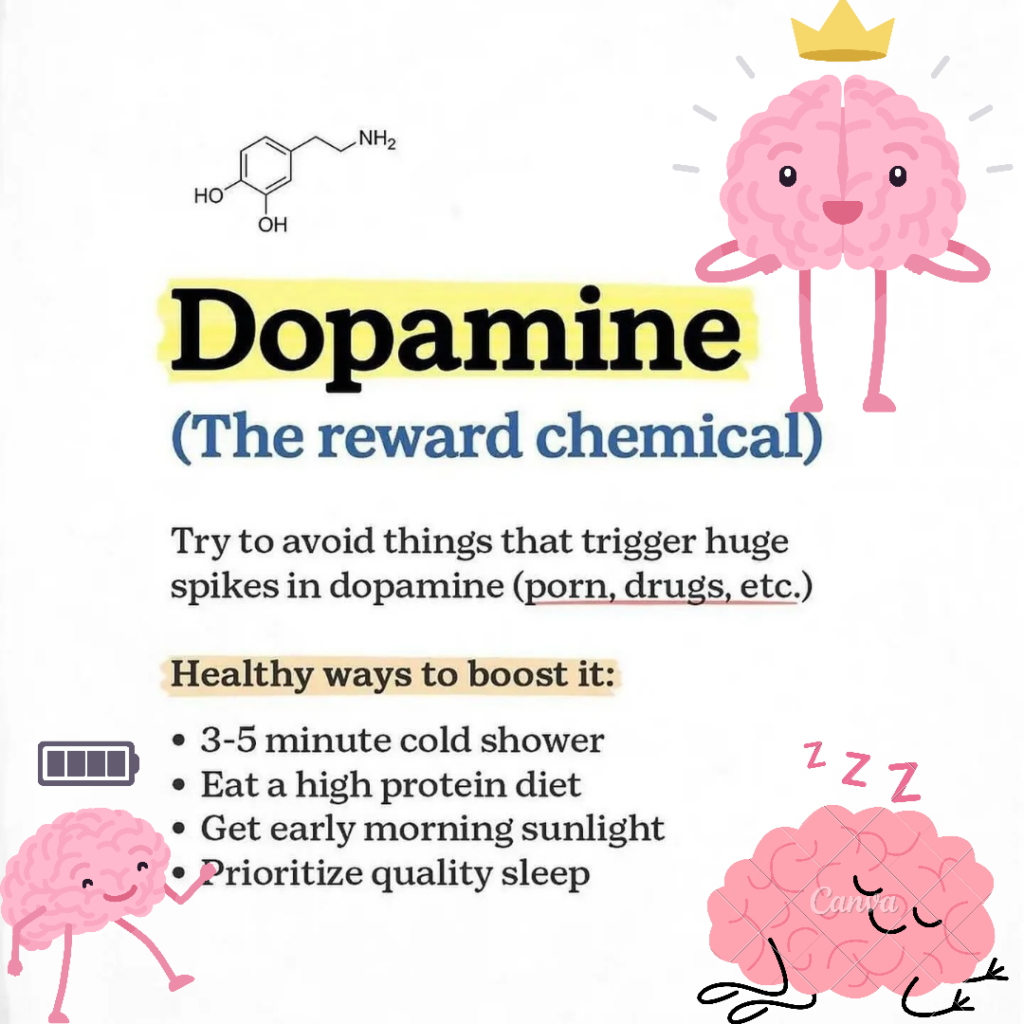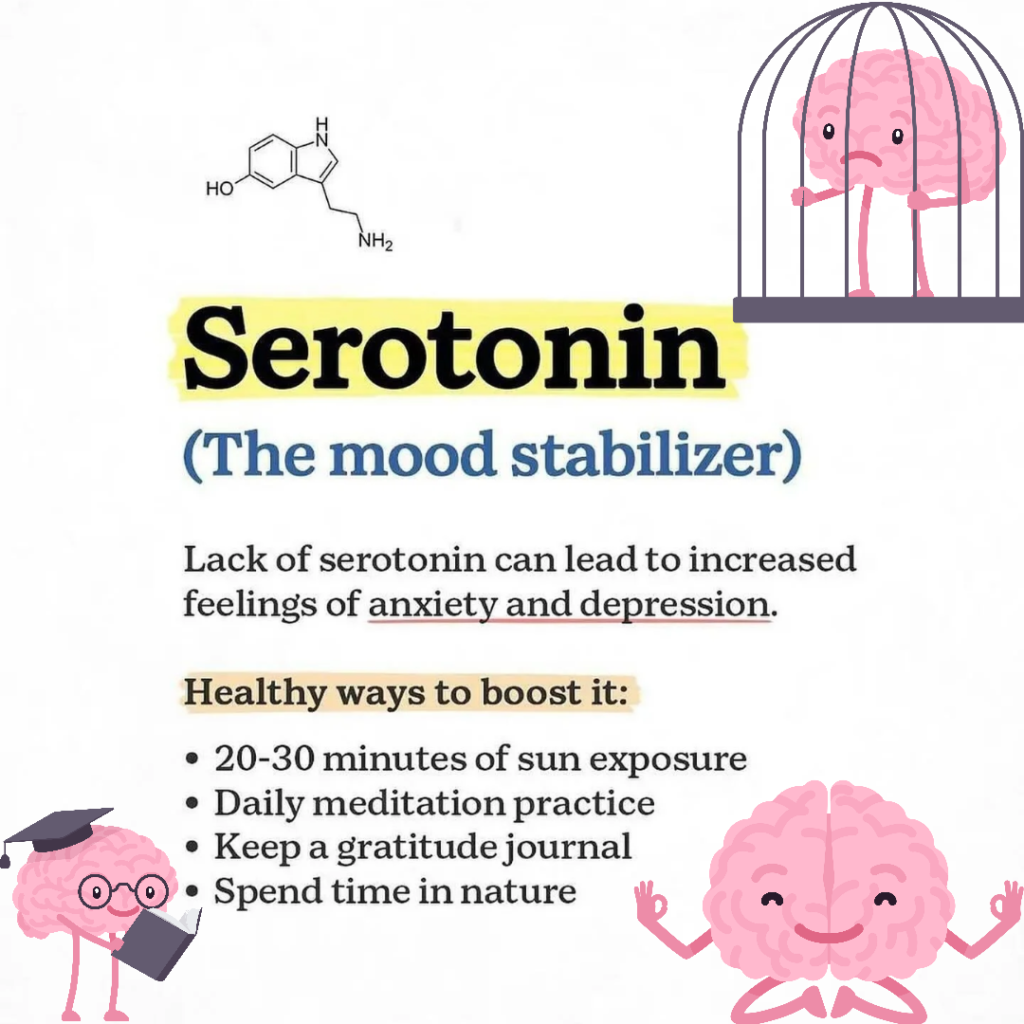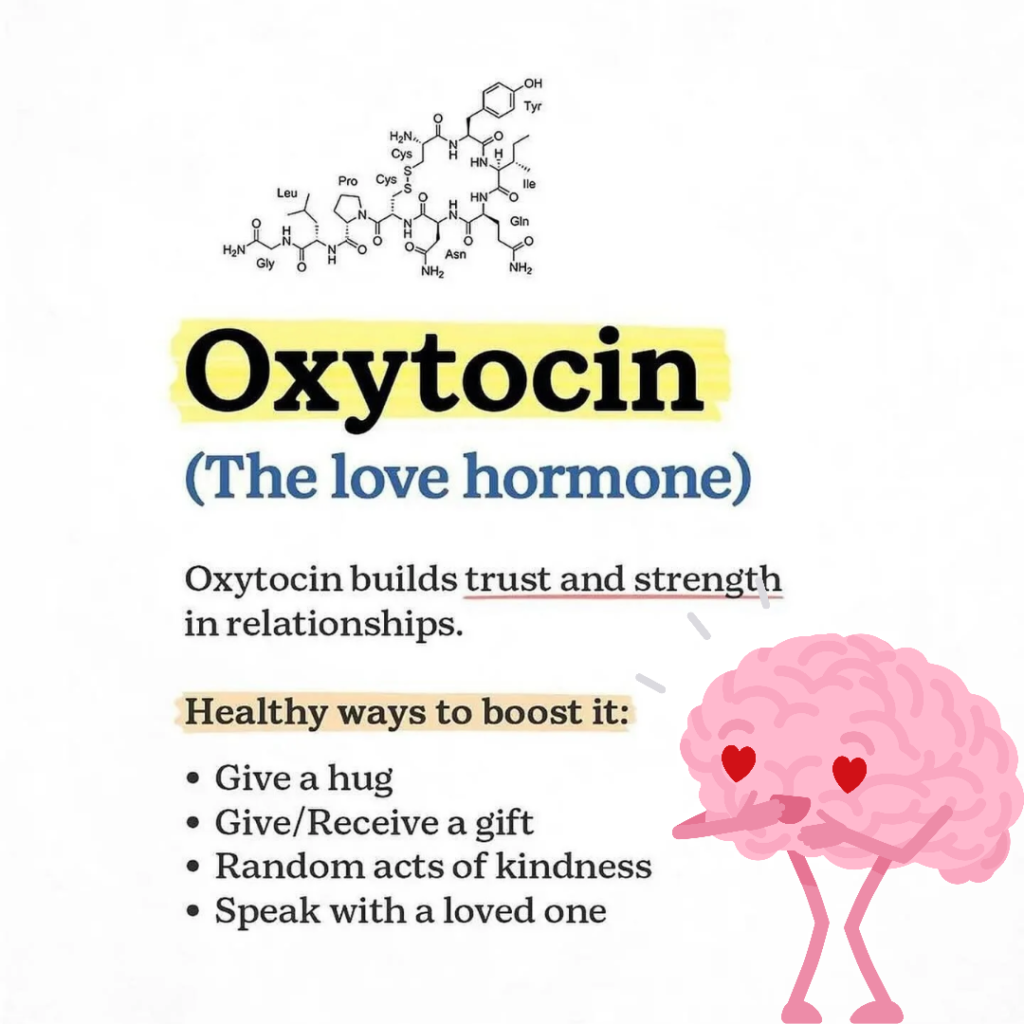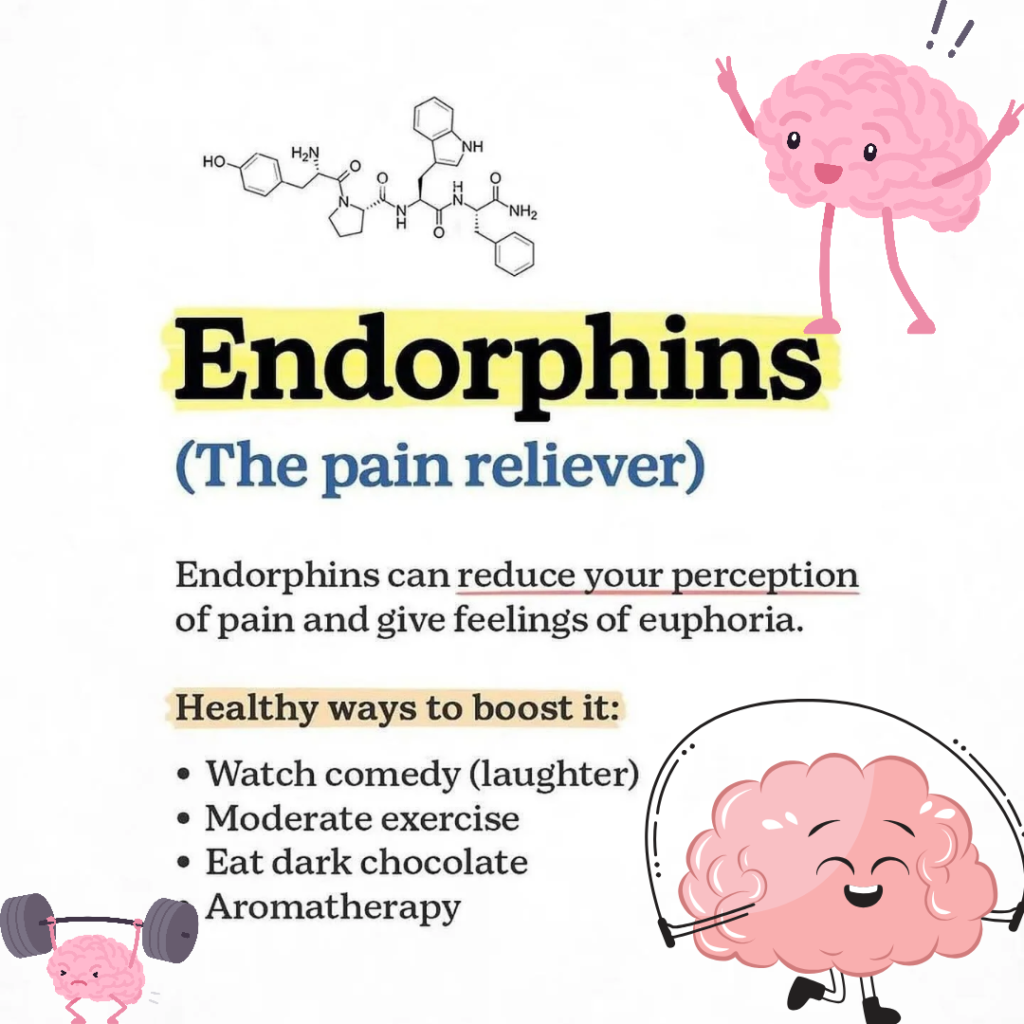Brain chemicals, also known as neurotransmitters, play essential roles in how we feel, think, and respond to life. Let’s explore some of the most important brain chemicals, how they affect our mood and behaviors, and what happens when their levels are unbalanced.
What is Dopamine?
- Dopamine is a powerful neurotransmitter and hormone made in the brain, responsible for sending messages between nerve cells throughout the body. Known for its role in pleasure, motivation, and memory, dopamine has a major impact on our mood, focus, and even body movements.
Key Roles of Dopamine:
- Controls movement and coordination
- Enhances memory and learning
- Drives reward, motivation, and pleasure
- Influences sleep, attention, and arousa

How Dopamine Affects Mood and Motivation: Dopamine is often called the “feel-good” hormone because it gives a sense of pleasure and reward. Activities that trigger dopamine release, like eating favorite foods or achieving goals, create a positive loop that can lead to repetitive behavior.
Effects of Balanced Dopamine Levels: When dopamine levels are well-balanced, you feel motivated, focused, and happy.
Effects of Low Dopamine Levels: Low dopamine can lead to feelings of tiredness, lack of motivation, and even depression.
What is Serotonin?
Serotonin is both a neurotransmitter and hormone, affecting almost every part of your body. Known as the mood stabilizer, serotonin plays a major role in regulating mood, sleep, hunger, and memory.
Functions of Serotonin in the Body:
- Influences mood and happiness
- Regulates sleep, body temperature, and appetite
- Supports learning and memory

Low Serotonin Levels and Mental Health Insufficient serotonin can lead to conditions like depression, anxiety, and insomnia, affecting both mental and physical health.
What is Serotonin?
Lorem ipsum dolor sit amet, consectetur adipiscing elit. Ut elit tellus, luctus nec ullamcorper mattis, pulvinar dapibus leo.
Often referred to as the “love hormone,” oxytocin is a natural hormone critical to social bonding, reproduction, and childbirth. Oxytocin fosters trust and emotional connection, especially between couples and between parents and infants.
Main Functions of Oxytocin:
- Stimulates uterine contractions during childbirth
- Supports lactation and bonding between mother and infant
- Boosts feelings of trust, recognition, and romantic attachment

Why Oxytocin is Called the “Love Hormone” Oxytocin levels increase during physical intimacy, such as hugging or during emotional connections, making it a natural promoter of social bonding.
What are Endorphins?
Endorphins are natural pain relievers and mood enhancers released in response to stress or discomfort. Known for producing a “runner’s high,” endorphins help us push through physical pain and maintain a positive outlook.
How Endorphins Work in the Body:
- Block pain signals, creating a sense of relief
- Promote feelings of pleasure and euphoria

Natural Ways to Boost Endorphins: Exercise is a great way to increase endorphin levels—activities like running, dancing, and swimming can all provide a boost. This release of endorphins also contributes to overall well-being and stress management.
Symptoms of Low Endorphin Levels: Endorphin deficiency can lead to issues such as depression, chronic pain, anxiety, and even addiction. People with low endorphin levels may seek relief through substances or behaviors that boost dopamine and endorphin levels temporarily.
Conclusion
Balancing brain chemicals like dopamine, serotonin, oxytocin, and endorphins is essential for maintaining a healthy mind and body. Understanding how each neurotransmitter works can empower us to make lifestyle changes that support mental wellness and improve quality of life.
Boosting your brain’s “feel-good” chemicals through healthy habits like regular exercise, quality sleep, and positive relationships can contribute to lasting well-being.

